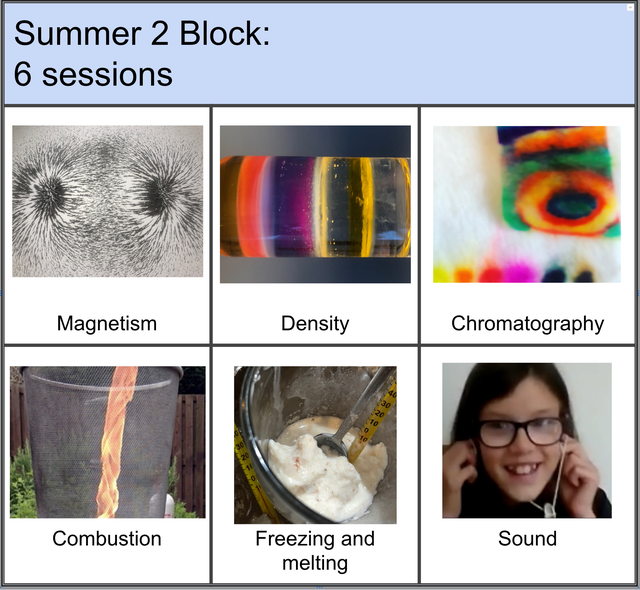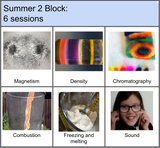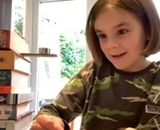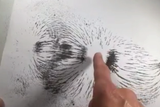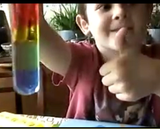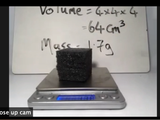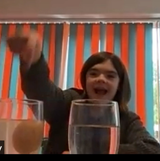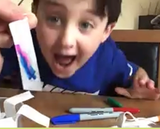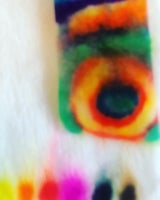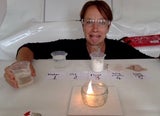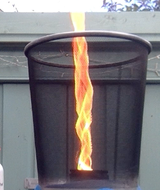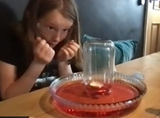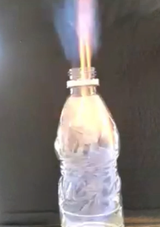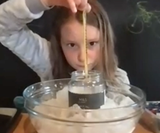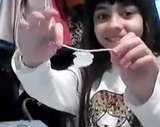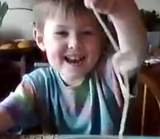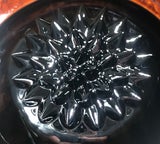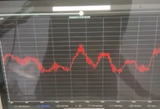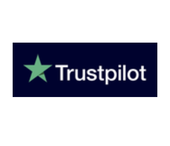- Online STEM
- >
- Summer 2
- >
- Online STEM: Summer 2
Online STEM: Summer 2
Magnetism (6th June)
Density (13th June)
Chromatography (20th June)
Combustion (27th June)
Freezing and Melting (4th July)
Sound (11th July)
Every Tuesday (6th June to 11th July, six sessions)
8-12s group: 1 - 1:50pm (UK GMT)
11-16s group: 2:10 - 3pm (UK GMT)
(Select from the options at the bottom).
Your home-education journal is already written!
In your booking confirmation email you'll receive a summary of the keywords, key concepts and student activities planned for each class, specific to your chosen age group. You can simply copy, paste and adapt it for your home-education journal and use it to support discussions with your child afterwards.
------------------------------------------------------
Magnetism (6th June)
Learn about the force of magnetism!
+ Experience the force of magnetism!
+Watch exciting demonstrations!
+ Make a working compass and find the North pole!
+ The older groups will also learn about magnetic field lines and domains
Equipment (To join an entirely optional practical)
It is a good idea to have a whiteboard or paper, pen, ruler and calculator to hand in each session.
- A strong magnet or two (Neodymium ones are good) Warning - swallowing these can cause serious health problems, keep away from very young children and pets. Magnets can destroy electronic data storage. Keep a safe distance from phones, computers and devices.
- Metal paper clip (small, not coated in plastic)
- Fine sewing thread (about 30cm)
- Stack of books (about 20cm high)
- Sticky tape or blue tack
- 30cm ruler
- Range of sheets of different materials (paper, plastic, fabric, foil, etc)
- Large bowl of water
- Large sewing needle
- A leaf, or plastic bottle cap
- Compass (if possible, on smart phone is fine)
- Scissors (take care with sharps)
What might younger students need help with?
Younger students might need help with tying knots and careful handling of magnets, water and a needle.
------------------------------------------------------
Density (13th June)
Learn all about what density is and how we can measure it!
+ Make a stunning density rainbow tower!
+Watch exciting demonstrations!
+ The older groups will also learn to calculate density of irregularly shaped objects such as their hand and learn to explain density with the particle model.
Equipment (To join an entirely optional practical)
It is a good idea to have a whiteboard or paper, pen, ruler and calculator to hand in each session.
- A tray or large plate might be a good idea
- 4 beakers or small cups
- Approx. 12 teaspoons of sugar (caster if possible)
- Warm water (take care near electronics, not hot)
- Four different food colourings
- A tall narrow transparent container (measuring cylinder, glass, boiling / test tube or similar)
- Pipettes or teaspoons
- Two spoons
- Two identical glasses or beakers of water
- Approx. 3 tablespoons table salt
- Two raw eggs or small tomatoes (these will be edible afterwards)
- Cloths to hand in case of spills
Links suggest sources of appropriate resources
What might younger students need help with?
Younger students might need help with careful handling of liquids and being slow and gentle as they add their syrup.
------------------------------------------------------
Chromatography (20th June)
Separating colours with Chemistry!
+ conduct chromatography experiments
+Watch exciting demonstrations!
+ The 11-15s group will also learn about plant pigments, good chromatography practice and how to calculate Rf values.
Equipment (To join an entirely optional practical)
It is a good idea to have a whiteboard or paper, pen, ruler and calculator to hand in each session.
- Table cloth / mat / tray
- A permanent black pen (if possible, not essential)
- A range of permanent colour pens (if possible, not essential)
- A range of water soluble colour felt pens
- Six or more cups / glasses, or beakers
- Water (take care near electronics)
- White coffee filter papers
- Nail varnish remover
- Pipettes / syringes (not essential) or teaspoons
- Pencil
- Ruler
- Scissors (take care with sharps)
- Kebab skewers / lolly sticks
- A range of small pieces of strongly coloured fruit / vegetables (e.g. spinach, raspberries, carrot, grass, red cabbage, beetroot, leaves of any sort)
- Eye protection recommended
- A round coin (any value)
Links suggest sources of appropriate resources
What might younger students need help with?
Younger students might need help with careful cutting and pouring and hanging their papers on sticks.
------------------------------------------------------
Combustion (27th June)
Learn about the chemistry of fire!
+ Conduct a combustion experiment
+Watch exciting fire demonstrations! Including a fire tornado!
Help put out some fires!
+ The older groups will also learn about the fire triangle and equations of combustion.
Equipment (To join an entirely optional practical)
It is a good idea to have a whiteboard or paper, pen, ruler and calculator to hand in each session.
- Small tealight candle
- Lighter / matches (Adult supervision strongly recommended)
- Large, flat-bottomed, transparent dish (eg. casserole dish)
- Water (take care near electronics)
- Food colouring (any colour) (optional)
- Blue tack / plasticine
- Narrow, tall, transparent glass (eg/. pint glass) (wide enough to fit the tealight in)
- Eye protection recommended
Links suggest sources of appropriate resources
What might younger students need help with?
Supervision with flames is strongly recommended.
Younger students may need help pouring water and setting up their equipment carefully.
------------------------------------------------------
Freezing and Melting (4th July)
Learn about the physics of freezing, boiling and melting: make ice cream!
+ Make ice cream (yes, it will be edible)!
+ conduct experiments to learn about freezing points
+Watch exciting demonstrations!
+ The older groups will also learn about heating curves and plotting graphs
Equipment (To join an entirely optional practical)
It is a good idea to have a whiteboard or paper, pen, ruler and calculator to hand in each session.
- Ice cubes (approx. 2 trays full / 25 cubes, straight from the freezer, not plastic coated or gel ones, they need to be able to melt)
- A piece of string (10cm ish)
- A small plate
- A medium sized mixing bowl
- A tall narrow glass (pint glass or similar, the narrower the better)
- A long spoon
- Salt: At least 10 heaped tablespoons. Any will do but the coarser the better (road salt is fine)
- Full fat milk (approx 100 mL (dairy free alternatives should work too)
- A teaspoon of sugar or sweetener
- Flavouring (vanilla extract, fruit puree or sauce...)
- A thermometer, if you have two, even better!
- You might want a cloth / towel to hand in case of spills
Links suggest sources of appropriate resources
What might younger students need help with?
Taking care with pouring and stirring and adding ingredients. Clearing any spills.
------------------------------------------------------
Sound (11th July)
See and feel what sound is and learn how it travels!
+ Make a device to see sound and control it with your voice!
+Watch exciting demonstrations about sound waves and amplitude!
+ The older groups will also learn about amplitude, frequency, pitch and oscilloscopes.
Equipment (To join an entirely optional practical)
It is a good idea to have a whiteboard or paper, pen, ruler and calculator to hand in each session.
- A metal fork
- String (two lengths each of about 50cm)
- A cup / glass (plastic or glass)
- Scissors (take care with sharps)
- A drinking straw (ideally not disposable plastic: any material, or a range straws of materials)
- Table salt / sand
- Pin / needle (sharp)
- Elastic band
- Balloons (one and some spares ideally)
- Whiteboard and pen / pen paper
- Eye protection recommended (but not essential)
What might younger students need help with?
Younger students might need help with tying knots, careful use of sharp scissors
Price is for one device (screen) to join for one session.
Upon booking you will receive a photography consent form and opportunity to let us know about any Special Educational Needs and Disabilities (SEND).
By booking you are agreeing to read and abide by the Privacy policy, safety and cancellation policies (Opens in a separate window).
